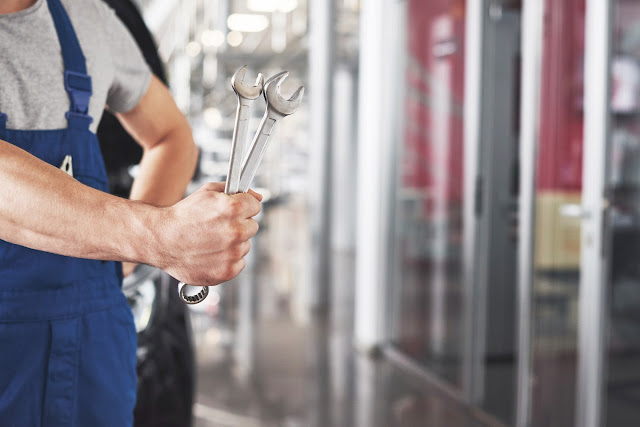Safety First: Best Practices for Using Heavy-Duty Stone Tools
The Invisible Danger in Every Cut
Working with stone isn’t just about precision -it’s about protection. Whether you’re a seasoned fabricator or just starting out in the trade, using heavy-duty stone tools comes with serious risks. From flying shards and silica dust to crushing injuries and hearing damage, one misstep can lead to long-term consequences.
At the core of every great project is not just skill -but safety. Let’s break down the best practices that can keep you productive, injury-free, and compliant, especially when working with the sharpest Cutting Tools & Blades in Dallas or lifting hefty slabs with advanced material handling equipment in Dallas.
Essential Safety Measures Every Stoneworker Needs
Eye Protection: Your First Line of Defense
When you cut, grind, or polish stone, tiny fragments and dust fly at high velocity. Wearing safety goggles or full-face shields that meet ANSI Z87.1 standards is non-negotiable. Whether you’re using Polishing Pads & Sandpaper in Dallas or running a bridge saw, protecting your eyes is the first step in staying safe.
- Choose wraparound lenses or side shields for full coverage.
- Use anti-fog, scratch-resistant coatings for clear vision on the job.
Respiratory Safety: Guarding Against Silica Dust
Dust from quartz, granite, and marble can cause silicosis -a deadly lung disease -if inhaled regularly. A dust mask isn’t enough.
- Opt for NIOSH-approved N95 or P100 respirators.
- Use a dust extractor or air scrubber when sourcing from Coring Tools & Accessories Near You.
- Always work in well-ventilated environments or invest in local exhaust systems.
Hearing Protection: Don’t Let Noise Damage Be Permanent
Grinders, polishers, and cutting machines can produce sound levels well above safe limits. Prolonged exposure causes irreversible hearing loss.
- Use foam earplugs or electronic earmuffs with at least 25 dB noise reduction.
- Consider hearing protection a standard item -just like gloves or boots.
Hand and Arm Protection: Grip Without Compromise
Your hands handle it all -from fine polishing to hauling 500-lb slabs. Injuries from slipping blades or pinched fingers are common, but preventable.
- Choose ANSI-rated cut-resistant gloves with reinforced grip.
- For slab lifting, use gauntlet-style gloves that extend protection to your forearms.
- When using material handling equipment in Dallas, gloves help prevent crushing and pinching injuries.
Footwear: Heavy-Duty Protection from the Ground Up
In a shop or jobsite, the floor is a battlefield of spilled water, falling tools, and stone slabs.
- Steel-toe boots are a must -look for ASTM-certified models.
- Opt for oil-resistant, slip-proof soles with waterproof uppers.
- For high-load tasks, ankle support is critical when maneuvering carts or suction lifters.
Clothing and Aprons: Your Body Needs Cover, Too
While working with a black wax bar or polishing compounds, your skin is vulnerable to burns, abrasions, and chemical exposure.
- Wear abrasion-resistant clothing such as denim or treated canvas.
- Choose fire-retardant gear when using high-friction tools.
- Aprons made of thick, waterproof material can protect your core and keep your clothes stain-free.
Smart Slab Handling: Use Tools That Minimize Risk
Lifting and moving slabs without proper tools is a recipe for back injuries or worse. Use mechanical aids whenever possible.
- Invest in suction lifters, slab clamps, and A-frame dollies with locking wheels.
- Use lifting straps and forklift booms that are rated for your stone weight.
- Coordinate your movements with spotters and maintain clear communication at all times.
Safety Isn’t a Bonus -It’s a Requirement
Whether you’re shaping a custom granite island or applying the final touch with a black wax bar, safety practices must be as routine as the work itself. The right protective gear paired with quality tools leads to better outcomes, fewer injuries, and more trust from your team and clients.
Looking to upgrade your shop setup or find reliable safety-rated supplies? Check out trusted suppliers of Cutting Tools & Blades in Dallas, Polishing Pads & Sandpaper in Dallas, and Coring Tools & Accessories Near You to align your tools with your safety goals.
Final Word: Invest in Safety, Reap Long-Term Results
Every minute spent ensuring safety is a minute invested in your future. Injuries not only delay projects -they damage reputations, morale, and lives. As a fabricator, your work may be etched in stone, but your approach to safety should always evolve.
Ready to build smarter and safer? Start with the right safety habits -and the right tools to match.




Comments
Post a Comment